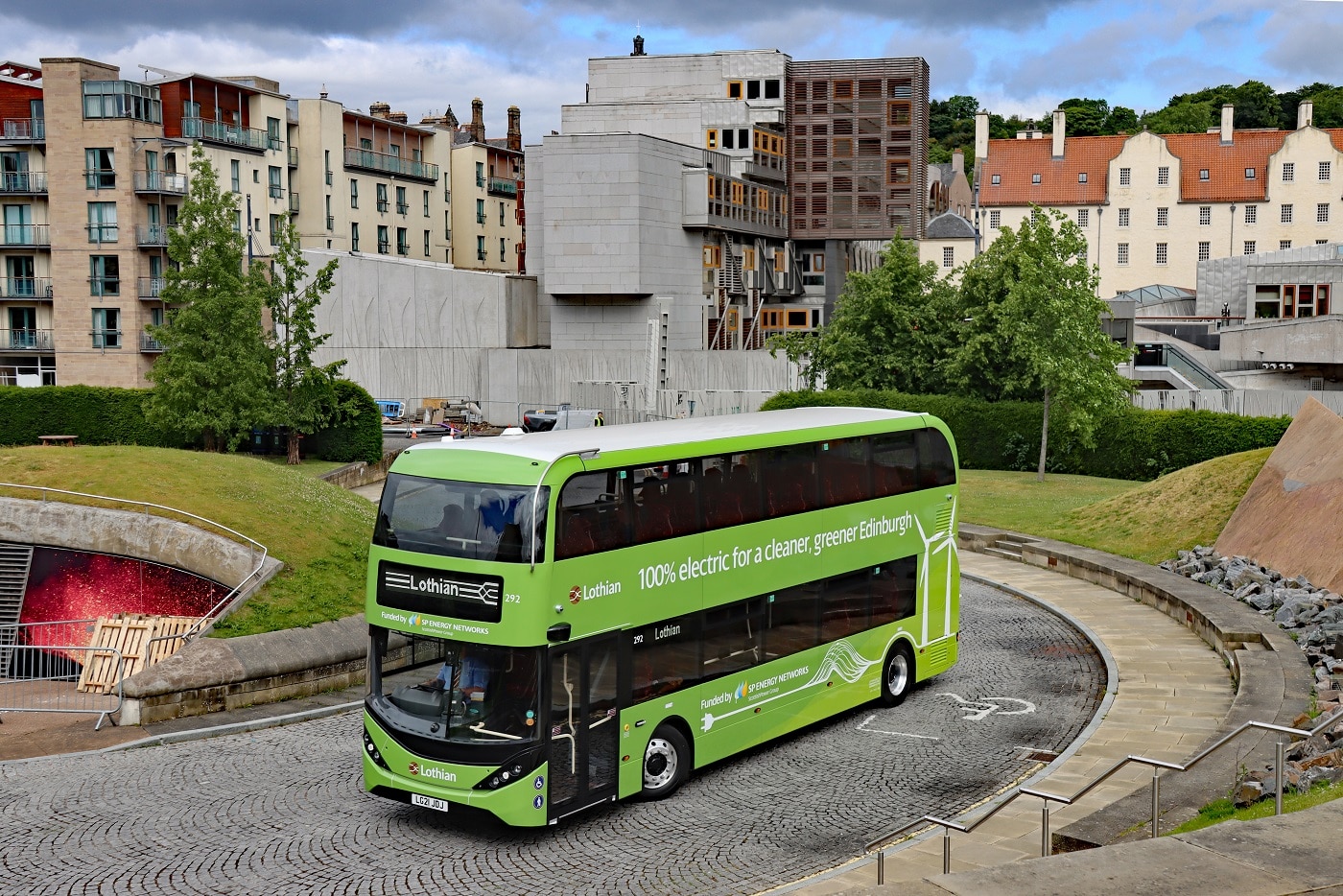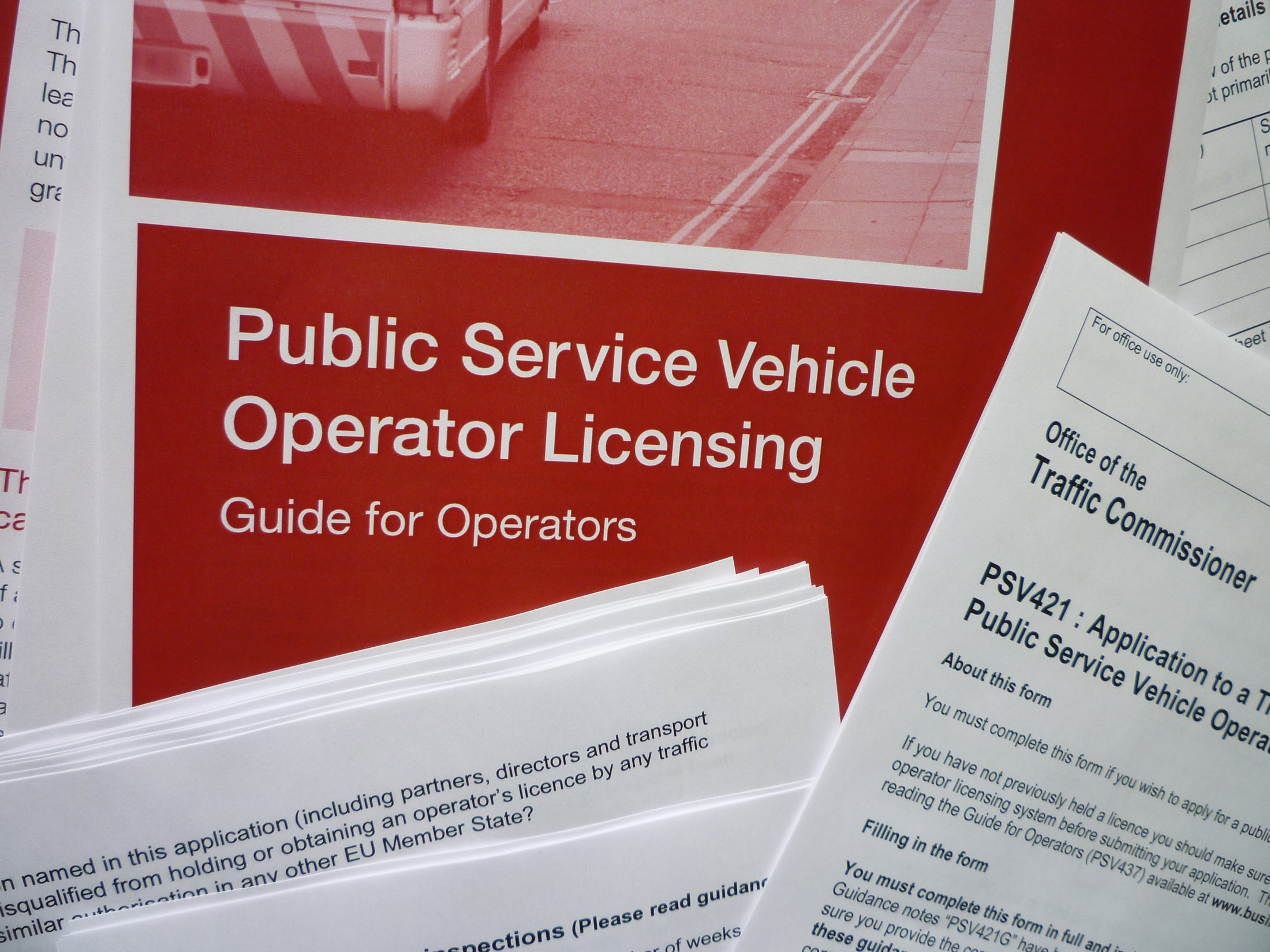Detailed guidance on the £50m first phase of the Scottish Zero Emission Bus (ScotZEB) fund has been published by Transport Scotland.
ScotZEB will support “swift and significant” change in the bus market through what Transport Scotland describes as “innovative business models.” It offers capped subsidy payments up to the cost increment from a diesel equivalent for eligible ZEBs that are used on registered local bus services, and towards infrastructure.
Despite its name, coaches, and minibuses with at least nine seats, are within scope of the fund. Subsidy that is awarded to winning bids on a per-vehicle basis will be capped using a sliding scale:
- For a zero-emission minibus with at least nine passenger seats and at least one wheelchair user space: £80,000
- For a ZEB with a capacity of 32 or more passengers: £140,000
- For a ZEB with at least 45 seats and a theoretical range of at least 310km, or one with a total capacity of 60 or more passengers: £180,000 for battery-electric, £230,000 for hydrogen fuel cell-electric.
Bids that require less funding per bus than the allowed maximums will receive a higher score at the assessment stage. ScotZEB will also cover up to 75% of the cost of battery-electric infrastructure. For hydrogen, that percentage is up to 85%.
Long-term financing that spreads the higher up-front purchase price of ZEBs is “strongly encouraged” by the guidance, being seen as a way to drive down the amount of subsidy required. Those arrangements must be specified in submissions. Potential bidders are advised to consult a ZEB financing ideas pack that was published by Transport Scotland in March.
To be eligible as part of a bid, a ZEB must have Ultra Low Emission Bus or Zero Emission Bus certification from Zemo Partnership or an equivalent independent certifying authority approved by Transport Scotland. It must also come with zero-emission heating and a five-year minimum warranty on all components.
All buses that are part-funded by the first round of ScotZEB should start to enter service no later than 12 months from order date, and all should be in service by 31 December 2024.
Zero-emission capable diesel-electric hybrids are not eligible and nor are bids for the retrofit of existing buses to achieve zero emissions.
Partnership bids are “strongly encouraged.” Operators that bid are encouraged to collaborate with their peers to obtain economies of scale on new vehicle orders. Also advocated is working with non-bus vehicle operators or local authorities to generate scale benefits of demand for hydrogen.
Energy companies involved are encouraged to engage with operators and financiers to use charging infrastructure to generate new revenue streams, while manufacturers and financiers could look at how they can lease vehicles to operators.
The deadline for applications is 4 November. Successful bidders will be informed in week commencing 6 December. The second round of ScotZEB is expected to open in April 2022, with lower maximum subsidy rates for both vehicles and infrastructure in force.
Download the full guidance here.



























